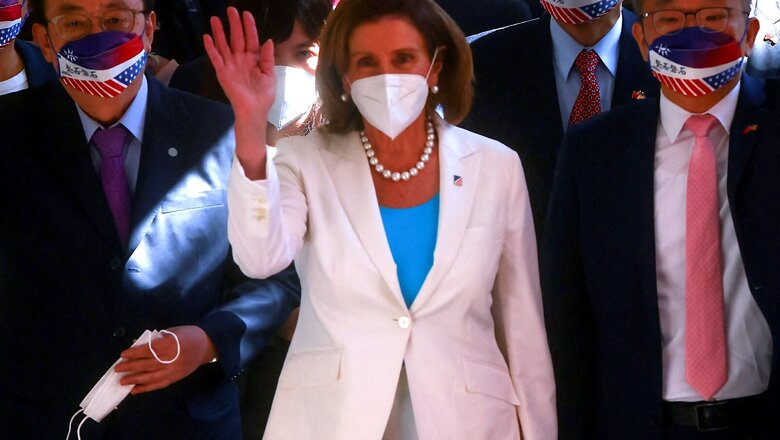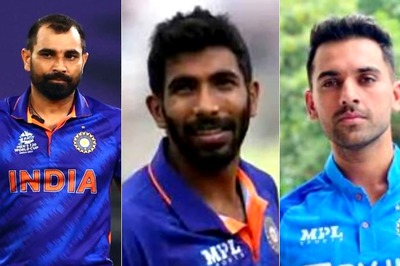
views
US House Speaker’s Nancy Pelosi’s visit to Taiwan, independent of the White House, has drawn China’s ire, and India is watching the developments but has not issued any statement as the country does not have formal diplomatic relations with Taiwan but have trade and people-to-people ties.
China, which claims Taiwan as part of its territory, announced several military exercises around the island and made statements after the US delegation reached Taipei.
India Follows One-China Policy
After China and Taiwan split in 1949, the One-China policy only recognises China and not the existence of Taiwan. However, the US, which also follows One-China policy like India, says it take no position on the status of Taiwan and China and wants them to resolve their disputes.
The meetings between leaders of Indian and China routinely reaffirmed One-China policy, however, India stopped doing so in 2010 after then Chinese Premier Wen Jiabao’s visit.
Beijing had conveyed to New Delhi that reiteration of the One-China policy would enhance mutual trust between the two countries. But India declined to reaffirm the policy after Beijing issued “stapled visas” instead of normal visas to Jammu and Kashmir residents travelling to China.
When Narendra Modi became the Prime Minister in 2014, he invited Taiwanese Ambassador Chung-Kwang Tien and Lobsang Sangay, the president of Central Tibetan Administration to his swearing-in ceremony.
Last year, MoS for external affairs V Muraleedharan clarified India’s position while replying to a question in Rajya Sabha. He said “government of India’s policy on Taiwan is clear and consistent.” He stressed that the government facilitates and promotes interactions in areas of trade, investment and tourism, culture and education and people-to-people exchanges.
He was asked whether the government plans to augment its bilateral, diplomatic and economic relations with Taiwan to a strategic level.
India has one office in Taipei for diplomatic functions. The India-Taipei Association (ITA) and the Taipei Economic and Cultural Center in New Delhi were both established in 1995.
Post 2020 Galwan Clashes
India’s relations with China strained after the Galwan clashes in 2020, and New Delhi picked Gourangalal Das – then joint secretary (Americas) in the Ministry of External Affairs – as the ambassador to Taipei.
While New Delhi is careful about not sending across a heavy political statement on Taiwan, in August 2020, India described the former Taiwan’s President Lee Teng-hui as “Mr Democracy” on his death.
India established ITA during Lee’s rule in 1995, and the current Taiwanese President, Tsai Ing-wen, is considered his protégé.
The Challenges
Sana Hashmi, visiting fellow at the Taiwan-Asia Exchange Foundation and Alan Yang, distinguished professor and deputy director at Institute of International Relations at National Chengchi University, wrote in a column for News18, “With the ongoing military standoff along the border, China’s rising aggression towards India are some of the challenges that keep India preoccupied at the bilateral front. In such a situation, Quad provides a platform for India along with other members to talk about Taiwan. There is no doubt that any eventuality in the Cross-Strait will have an impact on India as well. India should separate bilateral equations from regional issues.”
Read all the Latest News and Breaking News here
















Comments
0 comment